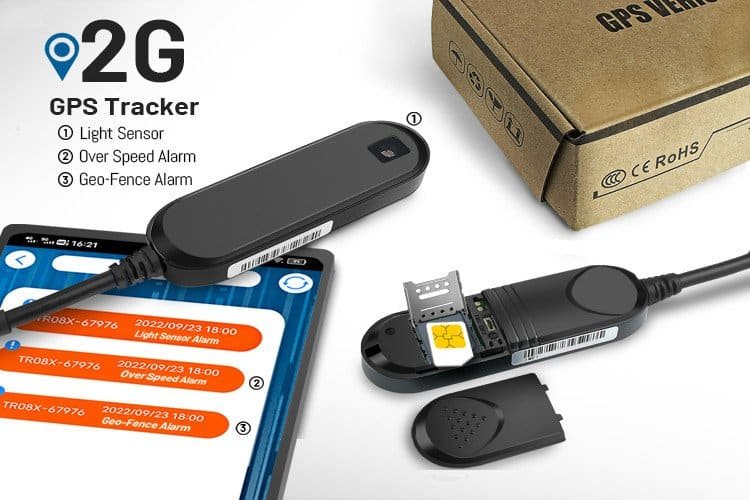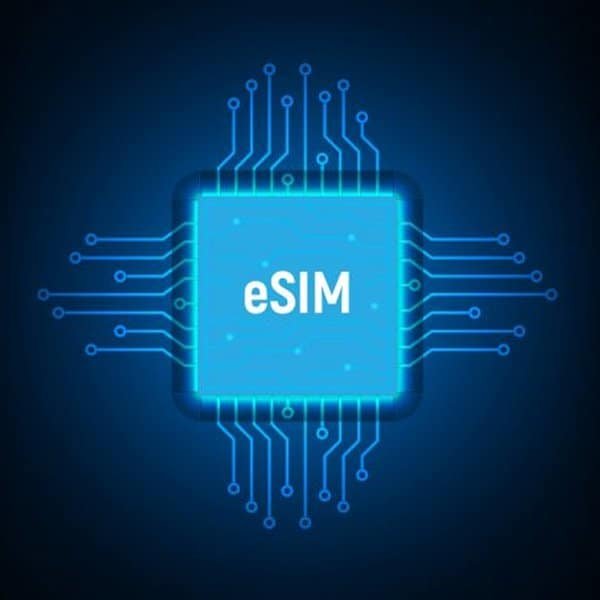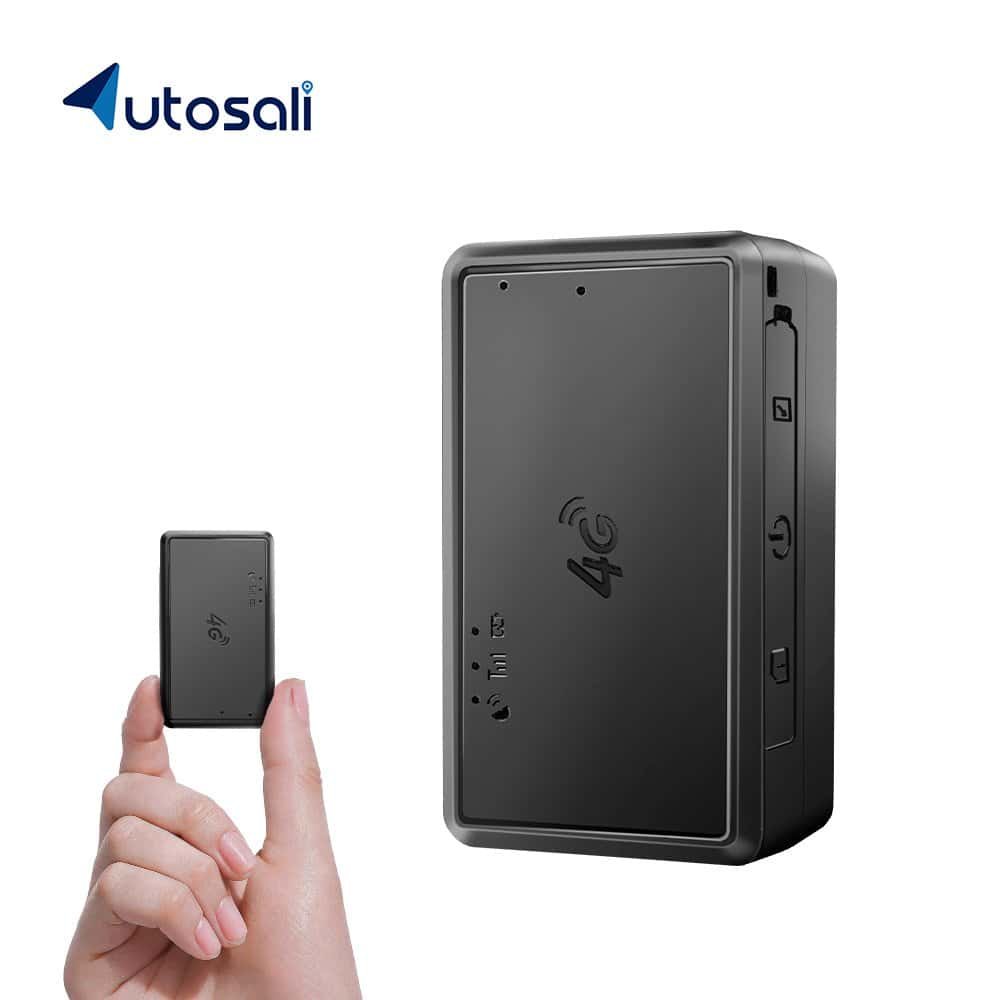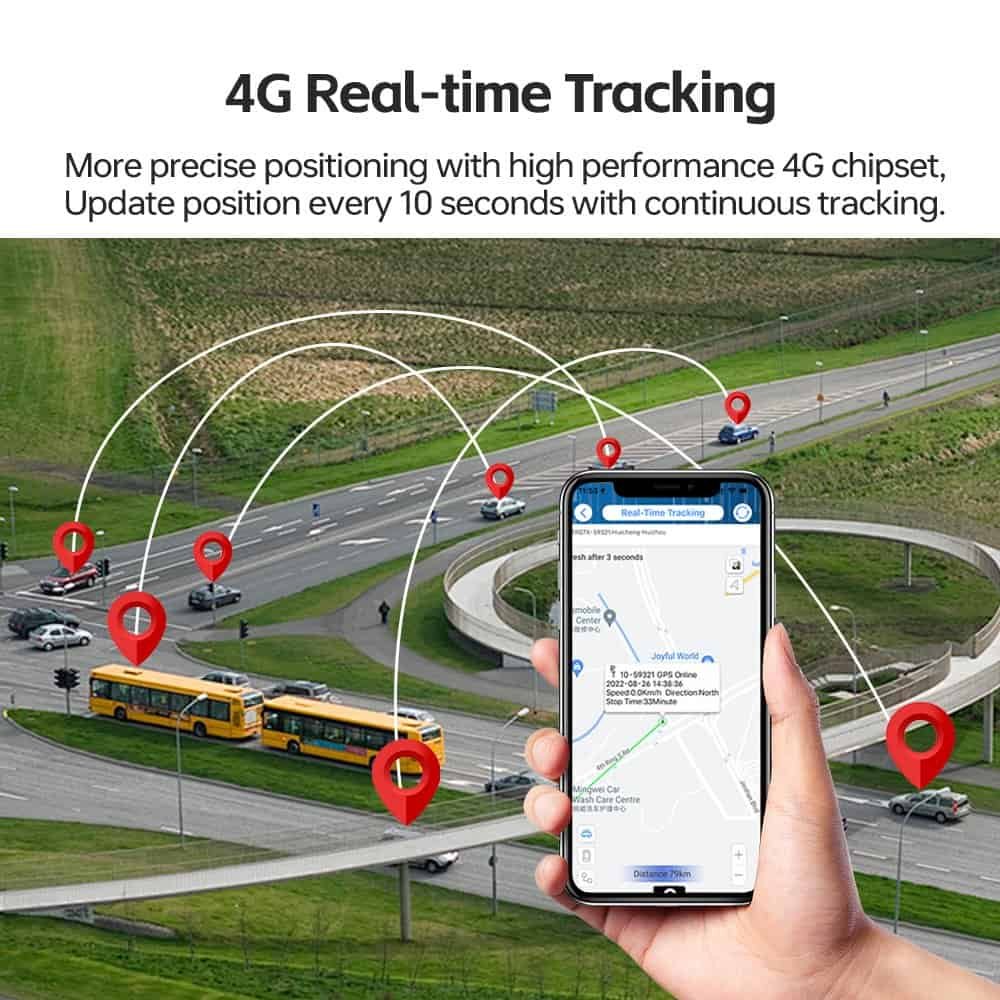For a quick answer, it is yes. There are two types of tracking device, one is work with sim card, and other is without sim card. Since the principles of working are different, it is too early to simply answer which one is better until we figure out the user’s usage scenarios and the specific solutions to be solved.
Can gps tracker work without sim card? This article will answer all your questions and help you understand the differences between the two types of trackers, and help you choose the right type of tracking device according to your needs.

- Definition of Two types of tracker: work with sim card and without sim card
1. Tracking Device WITH a SIM Card
– Uses cellular networks (GSM/GPRS/4G LTE) to transmit location data.
– Requires an active SIM card with a data or SMS plan.
– How it works:
– Sends location updates via mobile data (Internet) or SMS to a server or user’s phone.
– Gets location via GPS (or cell tower triangulation if GPS is unavailable).
– Examples:
– Car trackers with real-time tracking apps.
– Personal GPS trackers that send alerts via SMS.
– Pros:
– Real-time tracking anywhere with cellular coverage.
– Can send alerts (geofencing, SOS signals); Can control the vehicle /asset remotely(cut off engine via application, listen to the surrounding voice of assets); Can check and download data report(speed, stop places, historical playback, mileage, etc)
– Cons:
– Requires a paid cellular plan.
– May not work in areas with no signal.

2. Tracking Device WITHOUT a SIM Card
– Does not rely on cellular networks for data transmission.
– How it works:
– Stores location data internally (offline logging) for later retrieval.
– Uses Bluetooth/Wi-Fi for short-range tracking (e.g., Tile, AirTag).
– Some use satellite networks (e.g., satellite trackers) for remote areas.
– Examples:
– Bluetooth trackers (Tile, AirTag) – anti-lost device for assets
– GPS data loggers – save location history to internal memory.
– LoRaWAN/IoT trackers – transmit via low-power networks.
– Pros:
– No ongoing cellular costs.
– Works in areas without cell coverage (if storing data locally).
– Cons:
– No real-time tracking (unless connected to Wi-Fi/Bluetooth).
– The function is single, only for location, there are no functions such as receiving alarms, controlling and viewing historical data.
- Key differences
| Feature | With SIM Card | Without SIM Card |
| Real-Time Tracking | Yes | No(unless wi-fi/bluetooth connected) |
| Network Needed | Cellular(Mobile Data/SMS) | Bluetooth/Wi-Fi/satellite |
| Monthly Cost | Yes(for SIM Plan and subscription for some models) | No |
| Works Offline? | Only if storing data | Yes(stores data internally) |
| Best for | Vehicles, live tracking, company assets management | Personal asset tracking(key, luggage), local finding |
- Conclusion
It’s important to understanding what kind of trackers you are looking for at the first place. Different trackers with different features, such as device with sim cars or not, subscriptions, tracking location, safety issue, controlling purpose, etc.
– Choose a SIM-based tracker if you need real-time updates (e.g., for cars, kids, or pets); it’s used in industries such as: fleet management, asset tracking and transportation, etc.
– Choose a SIM-free tracker if you only need location logging or short-range finding (e.g., keys, luggage).
- With the update of technology and the improvement of user needs, many customers choose E-sim. By embedding the SIM card on the PCBA board in advance, the device and SIM card can be managed in an integrated manner, which is more secure and efficient.

- Have doubts about how to choose the right tracking device with sim card?
-For fleet management: wired tracker GT10 4G+2G Global network
-For asset tracking: wireless tracker with magnet VG07 series 3 sizes and batteries capacities for your options.





